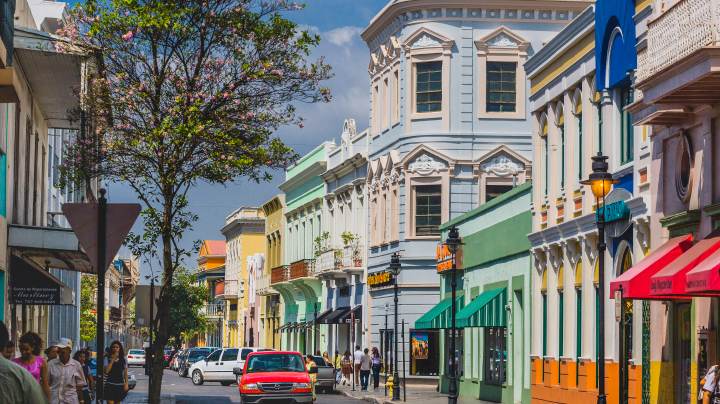Puerto Rico Gets Hit by Quake, Plans to Reopen Some Sectors of the Economy

Photo by Getty Images
On May 2, Puerto Rico’s southern region was hit with another major earthquake. Registering at 5.4, the quake reportedly crumbled buildings and homes in the municipality of Ponce.
Additional structures—many of which were weakened by the January 6.4-magnitude quake and smaller temblors since— were inevitably damaged.
There were reports of power outages throughout the island in the immediate wake of the shake, but electricity was soon restored.
Earthquake response protocol includes leaving buildings: The safest place to be during and immediately after an earthquake is outside. Of course, that instruction conflicts with Puerto Rico’s government-mandated safety regulations amid the current COVID-19 outbreak.
63 people displaced by Saturday’s quake were temperature-tested for indications of the virus when relocated to a hotel serving as a refuge, according to Noticias de Ponce. Masks and gloves were provided, as well as meals and access to mental health services.
As of today, Puerto Rico’s Department of Health reports a total of 1,843 COVID-19 cases, including 97 deaths, among its 3.1 million residents. Ponce accounts for a total of 44 of those cases.
Governor Wanda Vázquez stated publicly that she’s solicited FEMA to extend the incident period relating to earthquake damage, which spans from Dec. 28, 2019, through Feb. 4, to include Saturday’s event. Mayors of some of the affected cities say they are only now beginning to receive economic relief because of restrictions imposed by the U.S. Financial Oversight and Management Board which oversees Puerto Rico’s finances through the 2017 law, PROMESA.
Additional Puerto Ricans remain displaced by the previous earthquakes throughout the south, including Guánica, a town hard-hit by January’s quake. William Martínez, a leader at camp La Luna, said officials asked refugees to sign what an “orientation” regarding COVID-19. But the document was more akin to a waiver, according to Martínez. It released Guánica’s city government of all responsibility regarding the well-being of those inside the camp—including any issues related to COVID-19. Many of the older residents, he says, signed the document without fully understanding its implications.
On Thursday night, the government announced they would reopen some sectors of the economy. Medical specialists, real estate agents, accountants and engineers are among the workers encouraged to reopen for business. Noticias de Ponce reported heavy traffic in the municipality this morning.